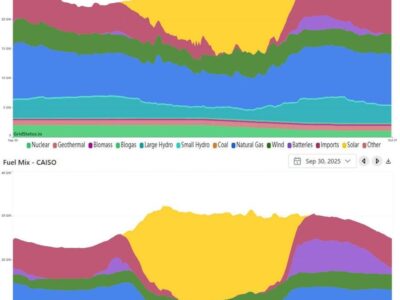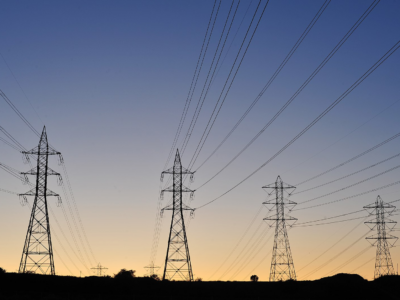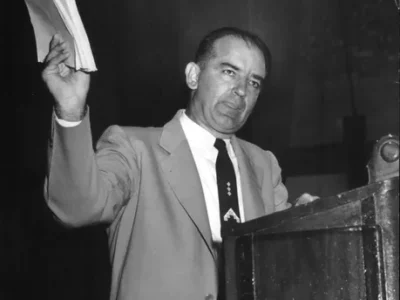A Yawning Credibility Gap
Courts are supposed to defer to agencies. But that happens less often when an agency lacks credibility.
Two themes in the Trump Administration are distrust of experts and a willingness to overrule them on ideological grounds. But undermining the government’s claims to expertise may come back to haunt the Administration. Because Trump is marginalizing government scientific and economic expertise, his regulatory initiatives may get less deference from the courts.
There is already a great deal of concern regarding the integrity of government science under Trump. It’s a familiar litany: websites taken down, scientists told not to talk to the press, and fears among scientists about the safety of the data they’ve collected. On Feb. 14, Trump repeated the unfounded claim that there’s been a “huge increase” in autism, and he discussed forming a vaccine safety commission with anti-vaxxer RFK, Jr. The front-runner for the Science Advisor post has called climate science a “glassey-eyed cult.” The Trump Administration’s blithe disregard of facts – like how full the Mall was on Inauguration Day – certainly gives no confidence about the Administration’s willingness to tolerate research and scientific judgments at odds with its policy preferences.
There are also serious concerns about the quality of economic analysis within the Administration. Economists themselves are deeply concerned for a number of reasons, as the NY Times reported:
“And partly this reflects Mr. Trump’s appointments. Few of his key economic advisers have any economics training, and the only official who identifies as an economist — Peter Navarro, who earned a Harvard Ph.D. in economics and will head up the newly formed National Trade Council — stands so far outside the mainstream that he endorses few of the key tenets of the profession.”
Trump’s disdain toward conventional economics was further highlighted by the demotion of the Council of Economic Advisors from cabinet status, not to mention that there’s still no word about whom he might appoint. This is especially important because OIRA (the “regulation Czar”), which is mostly staffed by young public policy school graduates, turns to CEA when it needs expert advice about economic issues relating to regulations. Will there be any reason to trust any cost-benefit analysis coming out of this Administration?
In theory, none of this should matter for judicial review – the standards applied by courts are the same, regardless of the agency or the Administration. But there’s every reason to think that it does matter, at least at the margin. For instance, courts tend to be more skeptical when the agency rejects the views of its own science advisory board or of the National Academy of Sciences. An agency that has a reputation for care and competence can get some slack that’s not available to an agency thought to be dominated by incompetent bumblers. This may be especially true in the D.C. Circuit, because judges see the same agencies before them over and over again.
The credibility issue was also lurking in the background of the recent court decisions against Trump’s immigration ban. Normally, you would expect courts to go well out of their way to defer to the President’s judgments about national security, partly because the President has access to classified information not available to courts. But Trump got less mileage from that deference, because he’s widely known to skip intelligence briefings and get his information from cable news and Twitter. The constant tweeting also highlights the extent to which decisions were seemingly made long before the evidence was available. This lack of credibility wasn’t the only pitfall encountered by the government defense of the order, but it surely didn’t help the DOJ lawyers make a convincing case..
An earlier example of how lack of credibility can hurt the government in court came during George W. Bush’s Administration. Some astute commentators think distrust of the Bush Administration– and of the government’s attachment to the rule of law – helped lead to the Supreme Court’s pathbreaking climate-change decision in Massachusetts v. EPA. According to a paper by Harvard law professors Jody Freeman and Adrian Vermeule,
“We locate MA v. EPA in the context of the Justices’ increasing worries about the politicization of administrative expertise, particularly under the Bush administration. The majority’s solution for this worry, we suggest, is a kind of expertise-forcing: the Court attempts to ensure that agencies actually do exercise expert judgment, and that they do so free from outside political pressures, even or especially political pressures emanating from the White House or political appointees in the agencies.”
Those worries about politicization of expertise will be exponentially greater under Trump than they ever were under Bush. Whatever you might say about Bush’s EPA administrators, they weren’t people who had built their reputations on suing EPA and rejecting accepted science. No wonder Christine Whitman, Bush’s first EPA head, has said, “I don’t recall ever having seen an appointment of someone who is so disdainful of the agency and the science behind what the agency does.” Many judges – even Republican appointees – are likely to find it harder to defer to that incarnation of EPA. When agencies lose their credibility with judges, they can expect to lose a lot of otherwise winnable lawsuits.







Reader Comments